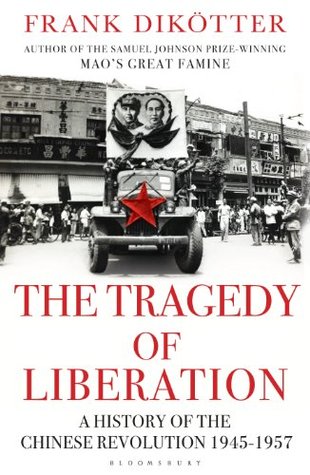As the historian Paul Wingrove notes, ‘Mao’s victorious, independent, revolutionary state was being treated in much the same way as the captive territories of Eastern Europe, from which the Soviet Union also extracted the standard tariff in exchange for services of “experts”.’ And in an echo of the extraterritorial rights that had been abolished under Chiang Kai-shek in 1943, none of the Russians would be subject to Chinese law. Mao’s hands were tied. China was weak and needed a strong protector as international positions were hardening in an unfolding Cold War. The treaty provided just that,
...more
Welcome back. Just a moment while we sign you in to your Goodreads account.


